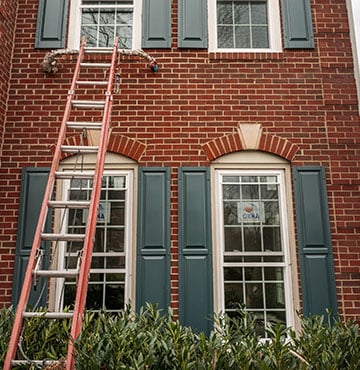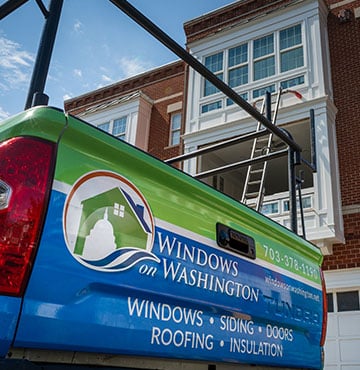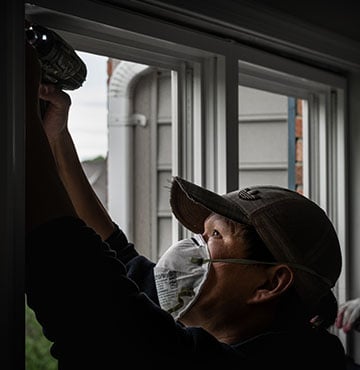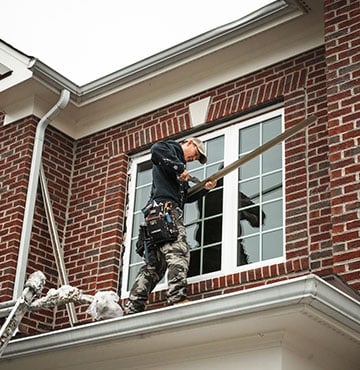New Windows for Your Home as low as $99/Month!
Limited Time Offer. Don't Wait! Get started TODAY!
*Upon approved credit.

Take the stress out of remodeling your home.
No pressure. No gimmicks. No hassle.
Just the solutions you need to get your project done right, brought to you by the company who has stood for honesty and quality in the home improvement industry for nearly 20 years.
Request a Quote
Our Reviews Speak For Themselves
After nearly 2 decades in business, client satisfaction is still what drives us to provide the highest level of quality in our service and in our products. We are proud of our reputation and do everything in our power to continue to exceed our clients' expectations.
Everyone at WoW went above and beyond, and exceeded my already high expectations. Our house is now warmer, quieter, and looks so much better!

Simply put, it was one of the best contracting / house project experiences we've had.


We Created a Better Way to Do Business
Simply put — we believe that improving your home should be enjoyable. That is why we spent years designing our consultations, installations, and client care experiences to provide every client with a stress-free home improvement experience. Founded in 2005, Windows on Washington has become one of the area’s most respected home improvement companies because we make our clients' homes more beautiful, comfortable, and energy efficient.

Premier People
Honest. Loyal. Experts in their field with over 18 years experience! That’s how we describe our team members. Many of them have been with us for over 18 years! When you want your project done right, always ask WHO will be doing the work.

Premier Products
After more than 18 years in the home improvement industry, we understand the differences between various brands and we choose the products we offer very carefully. We have done a tremendous amount of research so you don’t have to, and we stake our reputation on this knowledge.

Premier Process
We have a comprehensive 12-step client care process that will keep you up-to-date every step of the way. Our Client Care Team works closely with you so you know your project status at all times!
Explore
all Products
Why Replace Your Windows?
Whether your goal is comfort, security, curb appeal, energy efficiency or all of the above, the team at Windows on Washington has decades of experience helping homeowners find the best solution for their specific needs.

Increase Energy Efficiency
Help reduce the cost of heating and cooling your home by replacing your old windows with Okna windows. Replacing old windows can dramatically decrease air leakage and keep your home comfortable while saving you money on energy costs.

Reduce Drafts and Noise Pollution
Okna windows can help keep your family more comfortable by reducing cold drafts in winter and keeping your cool air from escaping in the summer. Replacing old windows may also help reduce noise pollution, making your home feel more peaceful and calm. Ask us about Okna's STC -rated sound reducing windows.

Better Curb Appeal
Okna windows are one of the best ways to boost the curb appeal of your home. There are several options to fit your design goals and complement your home's aesthetic.

You Are 3 Easy Steps Away From Project Success!
-
Schedule a No-Pressure Consultation
One of our experts will discuss your project either in your home or virtually
-
Discuss Your Project
Our expert will learn about your needs, ask some questions, and suggest the best products and service for your specific project and budget
-
Choose WoW and Relax!
If you choose to work with us, you can rest assured we will take care of every detail and keep you informed every step of the way
%20(720%20%C3%97%20510%20px)%20(500%20%C3%97%20500%20px)%20(300%20%C3%97%20300%20px)%20(400%20%C3%97%20400%20px)%20(700%20%C3%97%20700%20px)%20(480%20x%20550%20px).png?width=480&height=550&name=Untitled%20(860%20%C3%97%20860%20px)%20(720%20%C3%97%20510%20px)%20(500%20%C3%97%20500%20px)%20(300%20%C3%97%20300%20px)%20(400%20%C3%97%20400%20px)%20(700%20%C3%97%20700%20px)%20(480%20x%20550%20px).png)



























